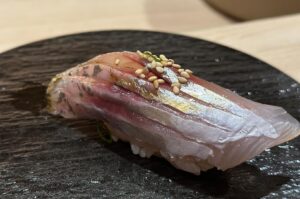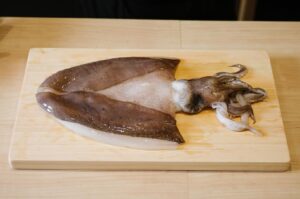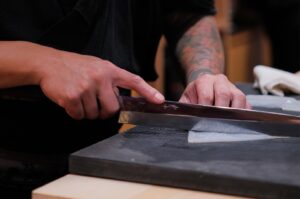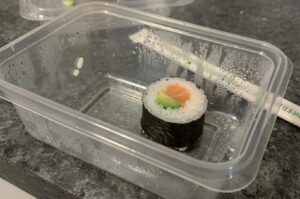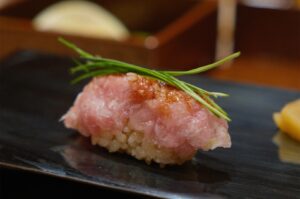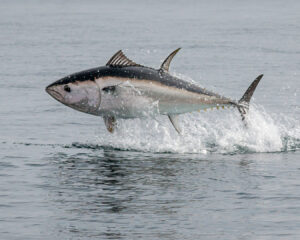
From Toyosu Market to Sushi Masa – Fresh Omakase Singapore
When guests ask why the sushi at Sushi Masa by Ki-setsu tastes so pure, fresh, and alive, the answer begins long before their arrival at our counter. It starts thousands of kilometres away in Japan’s bustling capital, at the world-famous Toyosu Market — the modern heart of Japan’s seafood trade.
For anyone seeking the best omakase Singapore experience, knowing the journey of each ingredient is part of understanding the artistry behind every dish. The story of how fish moves from the icy waters of Japan to the plate in front of you is one of tradition, precision, and relentless pursuit of quality.
The Beating Heart of Japan’s Seafood Trade
From Tsukiji to Toyosu
Before Toyosu, there was Tsukiji Market — a cultural icon known for its lively tuna auctions and rows of seafood stalls that seemed to stretch forever. It was more than a market; it was a living museum of Japanese food culture. In 2018, Tsukiji’s wholesale operations moved to Toyosu Market, a modern facility with cutting-edge refrigeration and strict hygiene standards, without losing the market’s original spirit.
At Toyosu, quality control is uncompromising. Each fish is examined for freshness, fat content, and colour. The buyers — many of whom have worked in the trade for generations — can tell from a glance whether a fish meets their exacting standards.


While many restaurants place orders through large wholesalers, Chef Masa relies on a network of trusted buyers who know his preferences intimately. These buyers act as his eyes and hands at Toyosu, choosing seafood with the precision of a jeweller selecting gems.
He often says:
“If I wouldn’t serve it in Tokyo, I won’t serve it in Singapore.”
This means turning down perfectly good fish if it doesn’t meet the exceptional standard he holds himself to — an approach that ensures every course served at Sushi Masa has both the flavour and integrity that define Japanese omakase Singapore dining.
At Toyosu, timing is everything. Once purchased, the seafood is packed into specially designed boxes that maintain an optimal temperature. From there, it’s whisked to Narita or Haneda Airport for the first available flight to Singapore.
In many cases, the seafood you taste in the evening was still in Japanese waters the day before. This speed — from ocean to market to airfreight to the counter — is what gives Sushi Masa an edge in freshness over most restaurants.


Toyosu is a mirror of Japan’s seasons. In spring, stalls brim with tai (sea bream) and tender takenoko (bamboo shoots). Summer offers bright, lean cuts of tuna and shellfish like awabi (abalone). Autumn is marked by the arrival of sanma (Pacific saury) and the highly prized matsutake mushrooms. Winter brings indulgent treasures like kani (snow crab), ankimo (monkfish liver), and the fattiest cuts of otoro.
Each season brings a new rhythm to Sushi Masa’s menu, meaning no two visits are alike — a quality many regulars cherish.
The Final Stage – Chef Masa’s Hands
When the seafood arrives in Singapore, it is inspected once again. Chef Masa examines each piece for texture and aroma, ensuring it meets his standards before it’s served. There is no freezing, no prolonged storage — just immediate, meticulous preparation.
At the counter, guests can watch the transformation as fish becomes sushi: the delicate slicing, the measured seasoning of rice, the gentle brush of soy sauce. Every movement is deliberate, and every detail exists to highlight the ingredient’s natural qualities.

Why This Matters
In a city like Singapore, where competition in fine dining is fierce, many establishments serve excellent sushi. But few can trace their fish back to a specific lot purchased at Toyosu that very morning. Fewer still prepare it within hours of arrival.
This connection to Japan’s most respected seafood market is why discerning diners call Sushi Masa one of the best omakase Singapore experiences.
